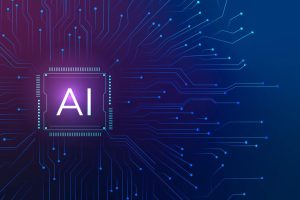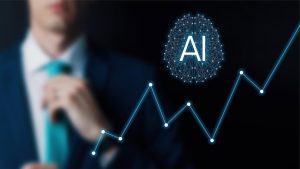Artificial Intelligence (AI) is rapidly reshaping industries around the globe, from manufacturing to healthcare, agriculture to retail, and beyond. The term AI Industries refers to sectors where intelligent automation, driven by AI, is being integrated into traditional processes to revolutionize efficiency, productivity, and innovation. As businesses look toward future-proofing their operations, the role of AI in industrial sectors is becoming increasingly critical.
In this article, we explore how AI Industries are evolving, the benefits they bring to various sectors, the challenges associated with integrating AI technologies, and what the future holds for AI-powered industries.
Introduction: The Rise of AI Industries

The fourth industrial revolution, or Industry 4.0, is characterized by the fusion of physical and digital technologies such as AI, machine learning, robotics, and the Internet of Things (IoT). At the forefront of this shift are AI Industries, which integrate AI-driven technologies into various aspects of industrial operations, from production and logistics to quality control and customer service.
AI Industries are transforming how businesses operate by optimizing production processes, minimizing waste, improving decision-making, and reducing operational costs. This evolution has opened up new possibilities for enhancing efficiency in complex industrial systems and increasing profitability.
Industries that are embracing AI are seeing significant benefits, but the road to fully integrated AI operations is not without its challenges. For AI Industries to thrive, it is essential for companies to invest in both technology and human capital to successfully manage this transition.
The Role of AI in Different Industrial Sectors
The impact of AI Industries is evident across a wide array of sectors. Each industry benefits differently from AI, but the overarching theme is improved performance, cost savings, and enhanced customer experiences. Here are some of the key sectors leading the adoption of AI technologies in industrial settings:
1. Manufacturing

In the manufacturing sector, AI Industries are making a significant impact by improving production efficiency, reducing downtime, and enabling predictive maintenance. AI-powered systems can monitor equipment performance in real-time, identifying potential failures before they occur and scheduling maintenance accordingly. This proactive approach prevents costly machine breakdowns and ensures seamless production.
Additionally, AI is being used to optimize supply chain operations, automate routine tasks, and analyze data for better decision-making. Manufacturers are utilizing AI for quality control, using machine vision to detect defects that human workers may miss.
2. Healthcare
In healthcare, AI Industries are driving transformative changes by enabling the automation of routine medical processes, improving diagnostics, and assisting in patient care. AI-driven tools such as natural language processing and machine learning algorithms are being used to analyze vast amounts of patient data, identify patterns, and predict health outcomes.
AI is also being used to develop new drugs, customize treatment plans, and enhance medical imaging. Robotics, guided by AI, is assisting in surgeries, enabling precision that far exceeds human capabilities.
3. Energy
The energy sector is undergoing a transformation with the integration of AI. AI Industries within energy are focusing on optimizing energy production, distribution, and consumption. AI algorithms are used to predict energy demand, manage energy grids, and improve energy efficiency by analyzing consumption patterns.
Renewable energy sources like wind and solar benefit greatly from AI technologies, as AI-driven systems can predict weather patterns and optimize energy storage and distribution. This enables energy companies to maximize the output of renewable energy sources and reduce waste.
4. Agriculture

Agriculture is another area where AI Industries are making significant strides. AI is being utilized to improve crop yields, monitor soil health, and manage water resources efficiently. Drones and AI-powered robots are being deployed to automate tasks such as planting, harvesting, and spraying pesticides.
AI is also being used to analyze data collected from sensors and satellite imagery to provide farmers with insights into optimal planting times, soil conditions, and irrigation needs. This precision farming approach helps farmers to reduce costs, minimize environmental impact, and increase productivity.
5. Retail and E-commerce
Retail and e-commerce businesses are embracing AI Industries to enhance customer experience, improve inventory management, and optimize supply chains. AI is being used to create personalized shopping experiences, recommend products to customers, and automate customer service through chatbots and virtual assistants.
In logistics, AI-powered systems are being employed to predict demand, manage warehouse operations, and optimize delivery routes. Retailers are using AI to analyze customer behavior, optimize pricing strategies, and reduce operational inefficiencies.
6. Finance
In the finance industry,AI Industries are leading the charge in automating processes such as fraud detection, risk assessment, and trading. AI algorithms are being used to analyze large datasets in real-time, enabling financial institutions to make more informed decisions and detect anomalies that could indicate fraudulent activity.
AI is also being used in customer service, providing personalized financial advice and automating processes such as loan approvals and credit assessments. By streamlining these processes, AI is improving efficiency and reducing the time it takes for customers to access financial services.
The Benefits of AI in Industrial Sectors
The integration of AI into various industries is yielding numerous benefits that are transforming the way businesses operate. The key advantages of AI Industries include

1. Increased Efficiency
AI can automate routine tasks, reduce human error, and optimize production processes, leading to significant efficiency gains. In industries such as manufacturing and logistics, AI is being used to streamline operations and ensure that tasks are completed faster and with greater precision.
2. Cost Savings
By automating labor-intensive tasks and optimizing resources, AI Industries can reduce operational costs. For example, predictive maintenance in manufacturing helps prevent costly equipment failures, while AI-driven inventory management systems can reduce the need for excessive stock.
3. Improved Decision-Making
AI algorithms can analyze vast amounts of data in real-time, providing businesses with actionable insights that improve decision-making. This is particularly beneficial in industries such as finance and healthcare, where timely decisions can have a significant impact on outcomes.
4. Enhanced Customer Experiences
AI-powered technologies enable businesses to provide more personalized and responsive customer service. In retail, AI is being used to offer personalized product recommendations, while in finance, AI-driven chatbots can assist customers with their queries in real-time.
5. Better Resource Management
AI enables more efficient use of resources in industries such as agriculture and energy. For example, AI-driven systems can optimize irrigation schedules based on weather patterns, helping farmers conserve water. In the energy sector, AI can predict demand and optimize energy production, reducing waste.
Challenges Facing AI Industries
While the benefits of AI Industries are clear, there are also challenges that businesses must overcome to fully integrate AI into their operations. Some of the key challenges include

1. Data Privacy and Security
AI systems rely on vast amounts of data to function effectively. However, the collection and storage of this data raise concerns about privacy and security. Businesses must ensure that they have robust cybersecurity measures in place to protect sensitive information and comply with data protection regulations.
2. Skill Shortages
As AI technologies become more advanced, there is a growing demand for skilled workers who can develop, implement, and maintain these systems. However, there is currently a shortage of AI talent, which could slow the growth of AI Industries.
3. High Implementation Costs
Integrating AI into industrial processes can require significant upfront investment in technology, infrastructure, and training. While the long-term benefits often outweigh the initial costs, smaller businesses may struggle to afford the necessary investments.
4. Ethical Concerns
The use of AI raises ethical concerns, particularly in industries such as finance and healthcare. There are concerns that AI could be used to make biased decisions, or that it could replace human workers, leading to job losses. Businesses must ensure that their use of AI is transparent, fair, and ethical.
The Future of AI Industries
The future of AI Industries is bright, with AI technologies expected to play an even more significant role in industrial operations over the next decade. Several trends are expected to shape the future of AI Industries:

1. Increased Adoption of AI in Small and Medium Enterprises (SMEs)
As AI technologies become more affordable and accessible, more small and medium-sized enterprises (SMEs) are expected to adopt AI to improve their operations. This will level the playing field between smaller businesses and large corporations, allowing SMEs to compete more effectively.
2. Greater Integration of AI with IoT and Robotics
The convergence of AI, the Internet of Things (IoT), and robotics will drive further innovation in AI Industries. By combining these technologies, businesses will be able to create fully autonomous systems that can monitor, analyze, and optimize industrial processes with minimal human intervention.
3. The Rise of Edge AI
Edge AI, which involves processing data at the edge of a network rather than in the cloud, is expected to become increasingly important in AI Industries. Edge AI enables faster decision-making and reduces the need for data to be transmitted to centralized servers, improving efficiency and reducing latency.
4. AI-Driven Sustainability Initiatives
As industries seek to reduce their environmental impact, AI will play a key role in driving sustainability initiatives. AI-powered systems can optimize resource use, reduce waste, and improve energy efficiency, helping businesses meet their sustainability goals.
5. Human-AI Collaboration
While there are concerns that AI could replace human workers, the future of AI Industries is likely to involve greater collaboration between humans and machines. AI will take over repetitive, labor-intensive tasks, allowing human workers to focus on more strategic and creative roles.
Conclusion
AI Industries are at the forefront of the next industrial revolution, transforming sectors such as manufacturing, healthcare, agriculture, and energy. By harnessing the power of AI, businesses can improve efficiency, reduce costs, and enhance customer experiences, all while driving innovation and sustainability.
However, the integration of AI into industrial processes is not without its challenges. Businesses must address concerns around data privacy, skill shortages, and ethical considerations to fully realize the benefits of AI Industries.
Looking to the future, AI technologies will continue to evolve, bringing new opportunities for growth and innovation. The rise of edge AI, the convergence of AI with IoT and robotics, and the increasing focus on sustainability will shape the future of AI Industries, creating a more efficient, productive, and sustainable industrial landscape.
For businesses looking to thrive in the era of AI, investing in AI Industries is not just an option; it is a necessity. By embracing AI and integrating it into their operations, businesses can future-proof themselves and lead the charge in the next industrial revolution.
Leading AI Innovations Across Turkey’s Multi-Sector Landscape

